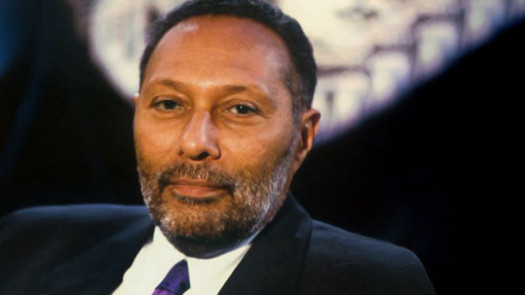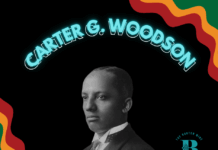
(Photo Credit: Google Images)
Google search for ‘Stuart’ and it’s interesting what appears. Stuart Weitzman, Stuart, Florida, Stuart Little — even a nod to the character Stuart from the Mad TV comedy series. It is not until I type the letter ‘h’ after Stuart that the correct suggestion pops up – Stuart Hall. A myriad of listings for the name then appear, the top choices being news of the death of the world renowned scholar by respected news outlets such as NPR and The Guardian. And then, nothing – until I click on page 2. There, a whopping two listings.
I am fully aware that the name Stuart Hall may not conjure up grand visions in the the minds of the general populace – most Americans outside of academic circles are probably unfamiliar with his legacy as the ‘godfather of multiculturalism’. And even then, scholars outside of fields like sociology, social psychology and communication do not often lean on his monumental cultural studies scholarship as support for their own work. I know we probably won’t see Hall tributes during general Black History Month celebrations, either.
So why should blacks in America pay any more attention to Stuart Hall and his work other than to lament at a brilliant mind lost? Simply put, his work exploring the the negotiation of blackness, otherness and multiculturalism is the very thing that set the stage for scholars such as Mark Anthony Neal, Michael Eric Dyson and Cornell West to engage in their critical commentaries on race, class, gender, the media and other issues that affect the negotiation of everyday black life in the U.S. These are the scholars that in turn work to challenge what the status quo establishes and normalizes as unwritten societal rules.
Hall’s contributions are better known across the pond, yet are critically important to the analysis of black life in the States and throughout the African diaspora.
Born in Kingston, Jamaica in 1932, Hall emigrated to the UK in 1951 on a Rhodes scholarship to study at Oxford. However, he knew after three months at the institution that it was not his home. In a 2012 interview with The Guardian, Hall recognizes his migration to England as somewhat of a failed attempt to flee his Jamaicaness, never really being English. “The life I have lived is one of partial displacement,” notes Hall.
His story is one of so many who emigrate to the West for opportunity or otherwise. It is also the story of numerous African Americans who are consistently made to feel like guests in their own country, forced to negotiate black and American identity simultaneously. This feeling of displacement, otherness and the societal factors fueling these phenomena are the foundation of Hall’s work.
Hall believed that we understand and construct meaning in our culture through representation. A student of theorists such as Foucault, Gramsci and of Marxist thought, Hall understood the relationship between language, knowledge, power and representation. It is the interpretation of his work that allows groups such as the NAACP and Media Education Foundation to understand, question and subsequently act on the images presented about people of color in the media and question the power structures that disseminate such images.
Long before it became a buzzword in the U.S., Hall explored multiculturalism and defined the concept of multicultural drift, the gradual shift in culture and ethnicity taking a hold of Britain. Just as in the U.S., some are accepting, some merely tolerate and others are vehemently against the change of the old guard. While Hall humbly attributes societal changes to this concept and not necessarily to his research, the identification of himself as both a black and multicultural body and of multicultural society has been key to navigating the globalization landscape.
Most importantly, Hall puts forth a conversation that gives permission to be the other, that gives permission to question power, thereby giving black scholars, and scholars at large, the tools to enact tangible social change. Hall’s work is a staple in the theoretical portfolio of graduate students in the social sciences – I recall pouring over books and articles, both by and referencing his work, as a doctoral student at Howard University. Now, I enact what I learned when I have discussions about media representation with youth groups, hopefully challenging them to monitor the images of black people that they support.
On the rare occasions when I say to myself “now, why am I a professor, again?” or “was majoring in the humanities the wisest choice?”, I turn and look to my bookshelf and center on the Stuart Hall section, silently solidifying my place in academe. Well done, brother.
This post was written by Dr. Chetachi A. Egwu, Assistant Professor of Humanities at Nova Southeastern University. Her scholarship focuses on Black Internet Usage and the African image in film, with an emphasis in documentary. The Howard University alumna is the owner of Conscious Thoughts Media. Dr. Egwu is a regular contributor to The Grio. Follow her on Twitter @Tachiada.
Like The Burton Wire on Facebook. Follow us on Twitter @TheBurtonWire.







